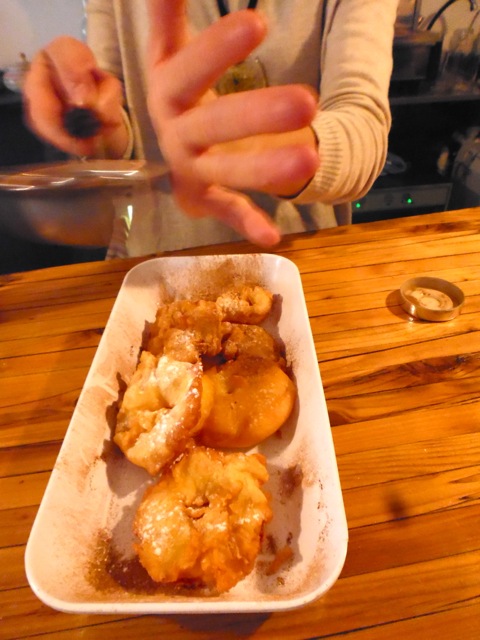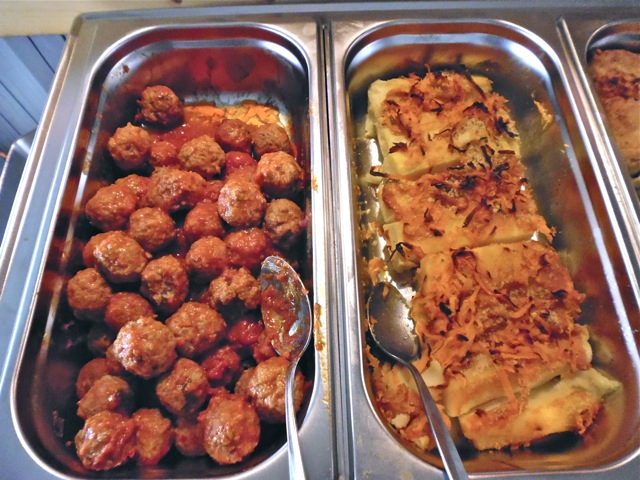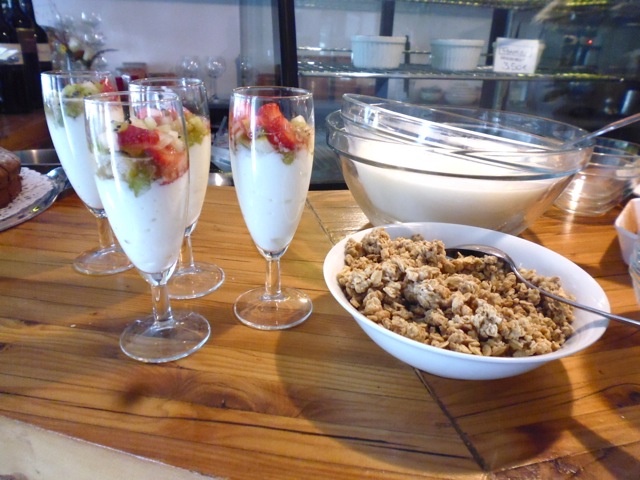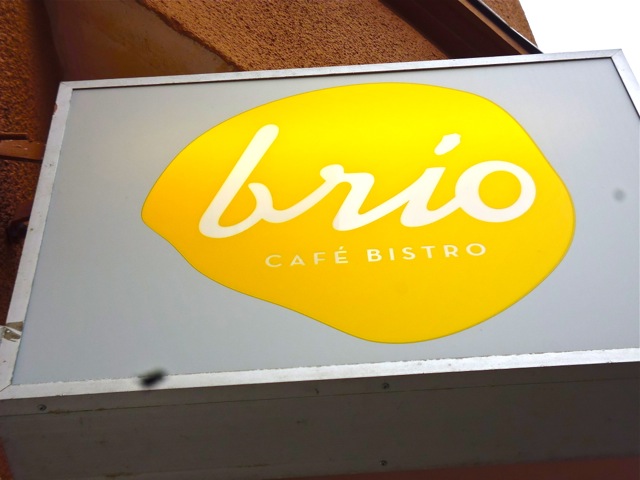The Berlin Brunch all’Italiana, at Brio
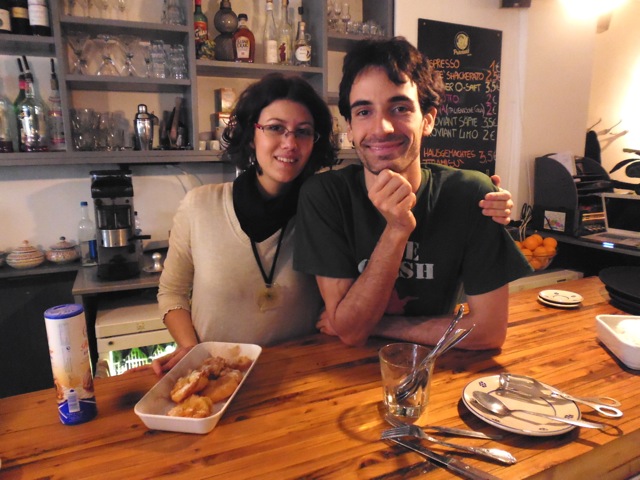
NOTE: Alas, the brunch at Brio has been suspended until further notice.
There’s no such thing as brunch in Italy. This essential Berlin ritual strikes Italians––conservative in their eating habits––as ghastly on a number of levels: Italians eat a small sweet breakfast, never a savoury one: a cornetto dipped into a latte macchiato standing at the bar is ample. So the image of Berliners filling their bellies with large quantities of cured meats and cheese in the late morning, after a long night out, might be one of those irreconcilable cultural differences.
The Berlin brunch only starts to make a little more sense to Italians when you explain that the locals often start eating around noon and the time with friends can last all afternoon: aspetta!, that’s starting to sound a little more familiar… a little like the long Sunday pranzo.
At Brio Restaurant in Kreuzberg, the ‘two lazy Italians who make everything homemade’ (that’s their slogan: the former is untrue, not the latter), the possibilities for cultural fusion, but without making (shocking!) compromises on the Italian tradition, are not ignored. This Sunday, they literally invented the Berlin brunch all’italiana.
There’s been a struggle with the different expectations of Berliners: the folks at Brio have learned that a soup in Germany is normally thought of as an appetiser, and not as a first course. Germans like to have their side dishes on the same plate as their main. ‘In Italy, having one lunch plate with everything on it is awfully strange’, Giulia shakes her head. And there have been areas where no compromise is possible: ‘In Germany, an espresso coffee is often very acidic, and salty, in comparison to what we drink it Italy. This is because 100% arabica beans is considered gourmet, while in Italy a blend of robusta and arabica beans makes for a soft landing at the end of a meal. We do it like they do in Italy’. One can certainly tell, and they use a delicious bean roasted a legno from Naples.
Some locally-available ingredients have proved superior to their Italian counterparts, on the other hand. Giulia says, ‘I am in love with Hokkaido pumpkins, something you can’t find in Italy. Because they contain very little water, they remain flavourful but they don’t make your torta or your ravioli mushy. This weekend, for brunch, I’m making a torta salata [like an Italian quiche] with Hokkaido, and another with escarole’.
Giulia and Andrea fell in love in the kitchens of Bar della Pace near Rome’s Piazza Navona where she was working as Andrea’s sous-chef. The first visit and fascination with Berlin happened in 2009, when they decided that they would like to open a restaurant here together.
What they lacked was experience, which they quickly obtained working at the three star Michelin restaurant Dal Pescatore in Mantova. Andrea worked alongside their star chef Nadia Santini preparing the secondi, or mains. Giulia found herself appointed a pastry chef–‘I had no choice, but that’s how you learn’, she told me. From here, Andrea worked in an artisanal laboratorio for fresh pasta all’uovo and Giulia in a pasticceria. At a certain point it became clear that their apprenticeship was over and they could take Berlin by storm: they moved in October 2012, and this past July they opened their Roman eatery Brio (which means sparkle or lively in Italian) on Graefestraße in Kreuzberg, specialising in affordable lunch plats (always under 10 EUR), evening aperitivo cocktains and piattini (tapas). There are few places in Berlin where you can eat so well for so little.
The idea for brunch came after spending Sunday evenings at the restaurant realising all the Germans were at home watching Tatort. When do Germans eat on a Sunday? became the question. They answered it in their conversion of the Sunday pranzo into the Berlin Brunch. Last Saturday, I passed the restaurant and found them busy in the kitchen peeling pumpkins and preparing long trays of the most typical of Sunday meals, the pasta al forno (oven-baked pasta).
‘For the vegetarians, we have a gratin, eggs of all kinds, Italian cured hams and cheeses, and, of course, my pastries: crostata (whole-grain tarts with sweet jams), chocolate torta, banana cakes, and something I think is perfect for a Sunday: frittelle di mela, apple fritters’.
I reply, teasing her a little, ‘Giulia, will there be no compromise whatsoever for the locals?’
She pulls back slightly, and laughs, ‘Don’t worry, there’ll be yoghurt and fruit—‘ and then she seems to gasp, as if she can hardly say the word, ‘…and müsli‘.
Brio. Graefestr. 71, Kreuzberg. Tues.-Sat 12-23h. Sunday brunch (10 EUR, not incl. drinks) 10-16h.

